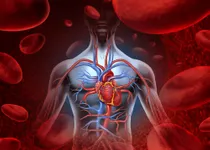 Cardiovascular disease, commonly called heart disease, is a blanket term for a wide range of conditions which affect the heart and surrounding veins and arteries. Thickened artery walls, called atherosclerosis, and high blood pressure are two of the most common types of heart disease. A wide range of factors contribute to the development of heart disease, with low levels of physical activity, overweightness and obesity, and tobacco use chief among them. People with heart disease are at elevated risk of heart attacks and other potentially fatal acute episodes. Management depends on the nature of the condition, but typically revolves around dietary interventions, increased levels of physical activity and other lifestyle modifications, and the use of drugs designed to treat the symptoms of the specific sub-condition.
Cardiovascular disease, commonly called heart disease, is a blanket term for a wide range of conditions which affect the heart and surrounding veins and arteries. Thickened artery walls, called atherosclerosis, and high blood pressure are two of the most common types of heart disease. A wide range of factors contribute to the development of heart disease, with low levels of physical activity, overweightness and obesity, and tobacco use chief among them. People with heart disease are at elevated risk of heart attacks and other potentially fatal acute episodes. Management depends on the nature of the condition, but typically revolves around dietary interventions, increased levels of physical activity and other lifestyle modifications, and the use of drugs designed to treat the symptoms of the specific sub-condition.

